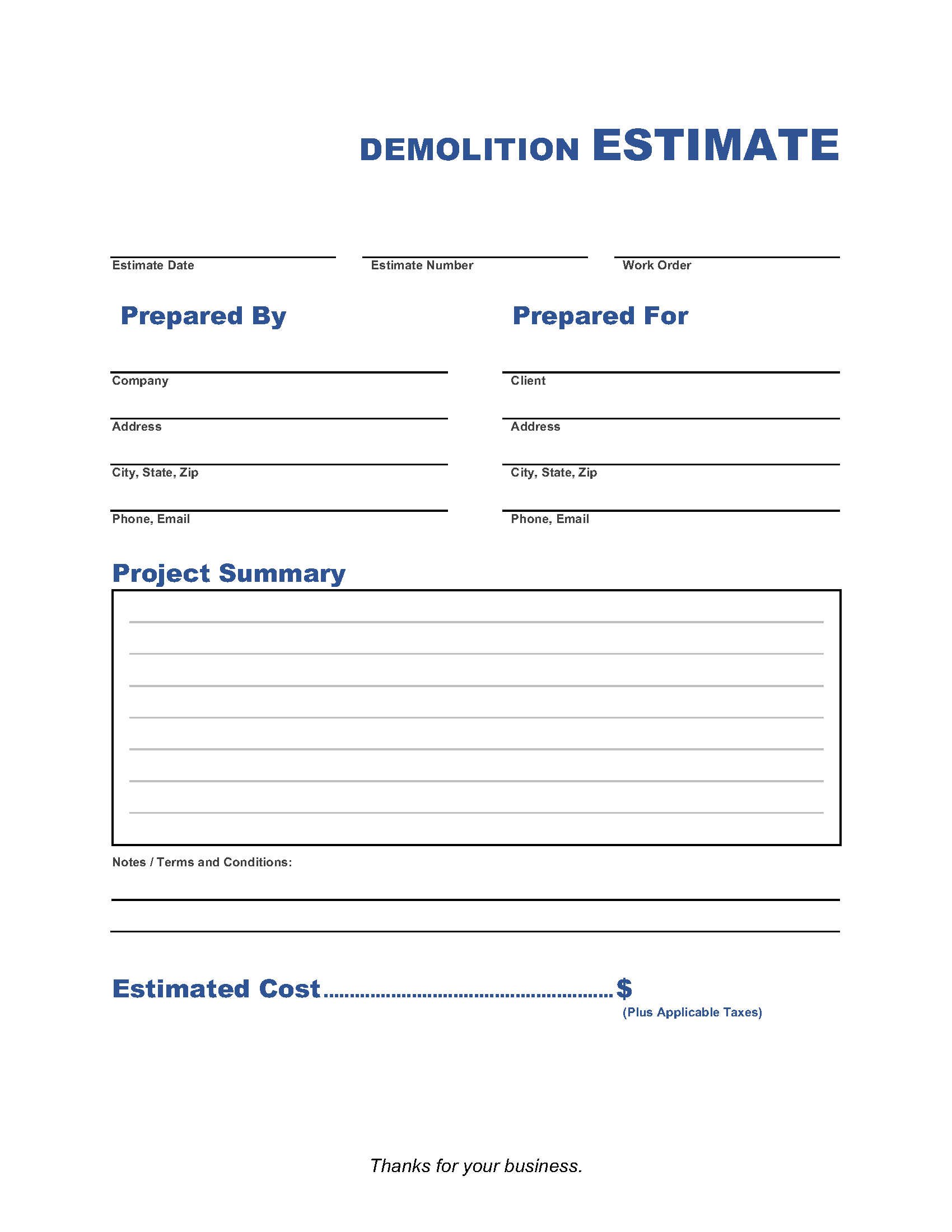Demolition Estimate Template
A demolition estimate is a form that outlines the potential cost of a demolition project. A contractor supplies this to a prospective customer before beginning work.
Types of Demolition
There are several types of demolition. Smaller buildings, such as houses several stories high, are often demolished with hydraulic equipment such as cranes, excavators, and bulldozers. A wrecking ball, which is a weighted ball on a cable hanging from a crane, is often used to demolish larger structures. Collateral damage resulting from this method is more difficult to control. Some structures, such as tall buildings in crowded urban spaces, are demolished using explosives. This method is quick and ensures the building collapses vertically without much horizontal impact. There’s another method known as deconstruction, which involves removing specific materials and saving them to be recycled or reused.
Demolition Process
Some crucial steps must be taken before demolition begins. First, the demolition laborer must survey the building and its surroundings. The survey involves determining what types of materials were used to construct the building, whether any are hazardous or toxic, and how the building interacts with its environment. If the survey reveals that hazardous materials were used, such as asbestos or radioactive metals, then specialists must be subcontracted to safely remove them. The next step is to draw up a demolition plan. This considers adjacent buildings and streets and outlines precautionary measures the demolition labor team will take to mitigate impacts on the surrounding area. The plan is essentially a detailed sequence of how the demolition will proceed and how debris will be handled in its aftermath. All workers will then be briefed on safety. Safety briefings should consider such issues as the flammability of materials, exposure to dust and chemicals, and sanitation.
Do Demolition Workers Need a License?
Generally, demolition laborers work for demolition or construction companies, but some are independent contractors. Regulations vary between states, but some states do require contractors to have a demolition contractor’s license. Demolition workers who use explosives must be licensed in their state.
Average Cost of a Demolition
Demolition is typically charged by the square foot, so a larger building will cost more to demolish than a smaller one. Other factors will also influence the cost of demolition, including whether hazardous materials such as asbestos or lead paint must be removed and how the debris must be managed and removed.
Demolition Permits
Demolition jobs require licenses or permits in most areas. Generally, a permit covers a single structure. Obtaining a permit involves submitting a demolition plan; some municipalities require information beyond the plan, so it’s best to check with your city’s building department about what’s required in your area.
What Should a Demolition Estimate Include?
- Contractor’s contact information
- Project timeline
- Cost of labor
- Cost of equipment rental or use
- Volume of material that must be removed offsite
- Cost of disposal
- Cost of permits and insurance
- Cost of disconnecting utilities
- Total estimated cost
- Payment terms
